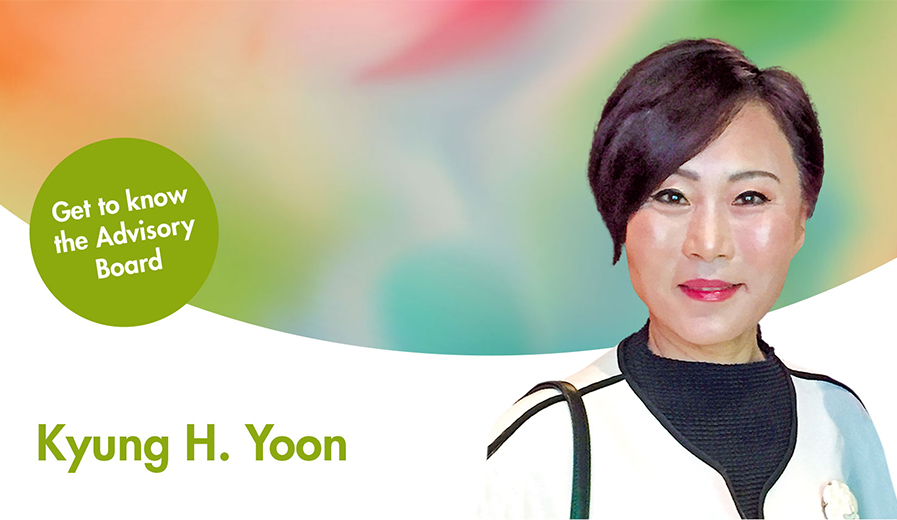
Interview with Stefanie Babst: Insights on Global Security and Women Empowerment
“Our goal is Victory for the Ukraine.“ Former NATO strategist Stefanie Dr. Babst espouses a clear course towards the Russian government.
With a 22-year remarkable NATO career in positions such as Deputy Assistant Secretary General for the Public Diplomacy Division (which made her the highest-ranking German woman in international staff), leader of the Strategic Foresight Team and a professional background in Russian and Eastern European studies, her opinion is in great demand.
In an exclusive interview, former NATO strategist Stefanie Babst, talks about the biggest and most pressing security challenge. She also reveals how the Global Female Leaders Community can support UN Security Council Resolution 1325 in general and Ukrainian women in particular.
Strategic Advisor, Author and Speaker | Former NATO Deputy Assistant Secretary General, Germany
Global Turmoil and the Importance of the Global Female Leaders Summit for Collaboration and Partnership Building
The Global Female Leaders Summit will be a platform for discussion of global issues – why do you consider it important?
There is little doubt that our world is in turmoil: the international landscape has become increasingly fragmented and unpredictable. Competition between states – from global powers to small countries - is growing. Climate change and the pace of technology have added to the plethora of challenges that political and economic leaders must cope with. There is a high risk that the international security environment will further deteriorate in the coming years. A growing coalition of authoritarian states are challenging the basic conditions for an open and rules-based international order. Their goal is to undermine the international system or remake it in their image. The Chinese Communist Party, for example, has become increasingly explicit in its aim to shape a China-centric international order. It is pursuing its ambition through a wide-ranging strategy; in ways that undermine individual rights and freedoms and apply coercive practices. China’s deepening partnership with Russia and Russia’s growing cooperation with Iran, North Korea and even Turkey in the wake of its invasion of Ukraine must be of particular concern to us.
Overall, the risk of military escalation is greater than at any time in decades, and an increasing number of advanced weapons systems have been developed and are currently being tested. The strategic stability mechanisms that helped in the past decades to mitigate the risks of spill over into uncontrolled conflict seem to be frozen. Arms control efforts have come to a halt. The use of commercial spyware and offensive cyber capabilities by state and non-state actors has proliferated, highlighting the critical importance of engaging with technology companies and shaping responsible norms of behavior with respect to cyberspace and new and emerging technology areas. At the same time, transnational security challenges still pose a considerable risk to European security with illegal migration being one of the major challenges. And Islamist terrorist groups have not vanished; many of them maintain their aspiration to conduct attacks against Western democracies. Meanwhile, organized crime groups have increased in scale and complexity, taking advantage of advanced technologies to develop new operating models. Today’s threat picture has become highly complex and fluid.
Navigating countries, businesses, and societies through this period of heightened volatility is not easy. It requires a clear-eyed comprehension of the strategic dynamics and the many unknowns, a high degree of mental agility and the preparedness to take courageous decisions.
The Global Female Leaders Summit provides a perfect venue for political and economic executives to compare their assumptions about the global turbulences and foster new partnerships that are vital if we want to tackle global challenges jointly and successfully. We need genuine possibilitarians on every level; and I am confident the Summit will host many.
Addressing the Fundamental and Pressing Security Challenge of Russia's Aggression Against Ukraine
What do you consider the most fundamental and pressing security challenge?
Russia’s brutal aggression against Ukraine has triggered the largest military conflict, refugee, and energy crisis in Europe since the end of the Second World War. It has brought large-scale, high intensity warfare back to Europe, with far-reaching strategic implications. The Kremlin’s war against a peaceful and sovereign nation – the second largest in Europe – is more than just another crisis or, as some appear to hope, a storm that will quickly pass. Apart from the incomprehensible size of death and destruction that it has brought to the 42 million Ukrainians, Russia’s war also makes abundantly clear that the stability and resilience of our economies and societies is a precondition of our security. We must address our vulnerabilities heads-on if we want to preserve the huge benefits that stem from our open and democratic societies. At the same time, we must guard against the worst effects of global disruption, transnational challenges, or military aggression. That means improving our economic, health and energy security; it means protecting our critical infrastructure better and safeguarding against disinformation and interference campaigns by our adversaries. Ultimately, it also means to accept that Russia’s war is not only directed against Ukraine but also our liberal and democratic countries. We are not neutral bystanders.
I truly hope that the Global Female Leaders Summit will convey a powerful message: one that stresses that political and business leaders are determined to fight back the malign influence of the terrorist, kleptocratic and revanchist regime in Moscow; that their will continue to support the self-defense and restoration of Ukraine’s sovereignty and territorial integrity; and that they are ready to join forces in defending our democratic way of life as well as international rules and norms against authoritarianism and military aggression – simply because we don’t want to live in a jungle ruled by the right of the stronger. This is not just about our democratic values. Political, economic and society leaders must also join forces because Ukraine’s security is all our security.
Empowering Ukrainian Women: How the Global Female Leaders Community Can Support UN Security Council Resolution 1325 in Conflict Zones
You have a personal interest in supporting UN Security Council Resolution 1325 in general and Ukrainian women in particular - how can the Global Female Leaders Community support you in this?
I have long been a passionate advocate of UN Security Council Resolution 1325. During my 22 years at NATO, I supported numerous projects for women in Afghanistan, the Middle East and across the Euro-Atlantic region. I also helped crafting dedicated national actions plans (NAP) for implementing UNSCR 1325. Yet sadly, the protection and political empowerment of women have suffered major setbacks in recent years. Afghanistan is a case in point; and so is Iran and Ukraine. Since Russia’s invasion of Ukraine in 2014 civilians have suffered inconceivably and the impact of the war continues to grow in scale and severity. Since the full-scale invasion in February 2022, thousands of civilians have been killed, nearly 14 million people have fled or become internally displaced and for those left in the country, basic services have been disrupted and the threats of attacks ever present.
As in all conflicts, women and girls suffer disproportionally in Ukraine, falling victims of sexual violence and human trafficking. Millions of Ukrainian women carry the heavy burden of ensuring their families can survive; physically and emotionally. However, women are also taking active part in the military protection, in emergency response as well as in peacebuilding, mediation, and in monitoring the human rights situation in the country. Nobel peace prize winner Oleksandra (Matwijtschuk) who will be with us at the Summit is a stellar example. But it’s also highly impressive that the Ukrainian government decided to update its action plan during the ongoing war. The updated NAP recognises that women must be actors and agents in the active conflict, as well as in the future reconstruction of the country. To build a sustainable, inclusive post-war Ukrainian society, women need to be involved in all relevant decision-making processes. Their needs, interests and perspectives must be taken into consideration in every step of the reconstruction process.
Participants of the Global Female Leaders Summit can support this important endeavour; not only by providing clear political and moral support for Ukraine’s self-defence but in very practical ways as well: for example, by building dedicated partnerships with Ukrainian women leaders and creating mentoring and tutoring programmes for young Ukrainian women who – once the war has ended – need to find their place in a post-war society. We all want to see a peaceful, stable, and re-energized Ukraine in the European family. This will not come cost-free. We all can and must contribute to this goal.
Comments
No Comments


